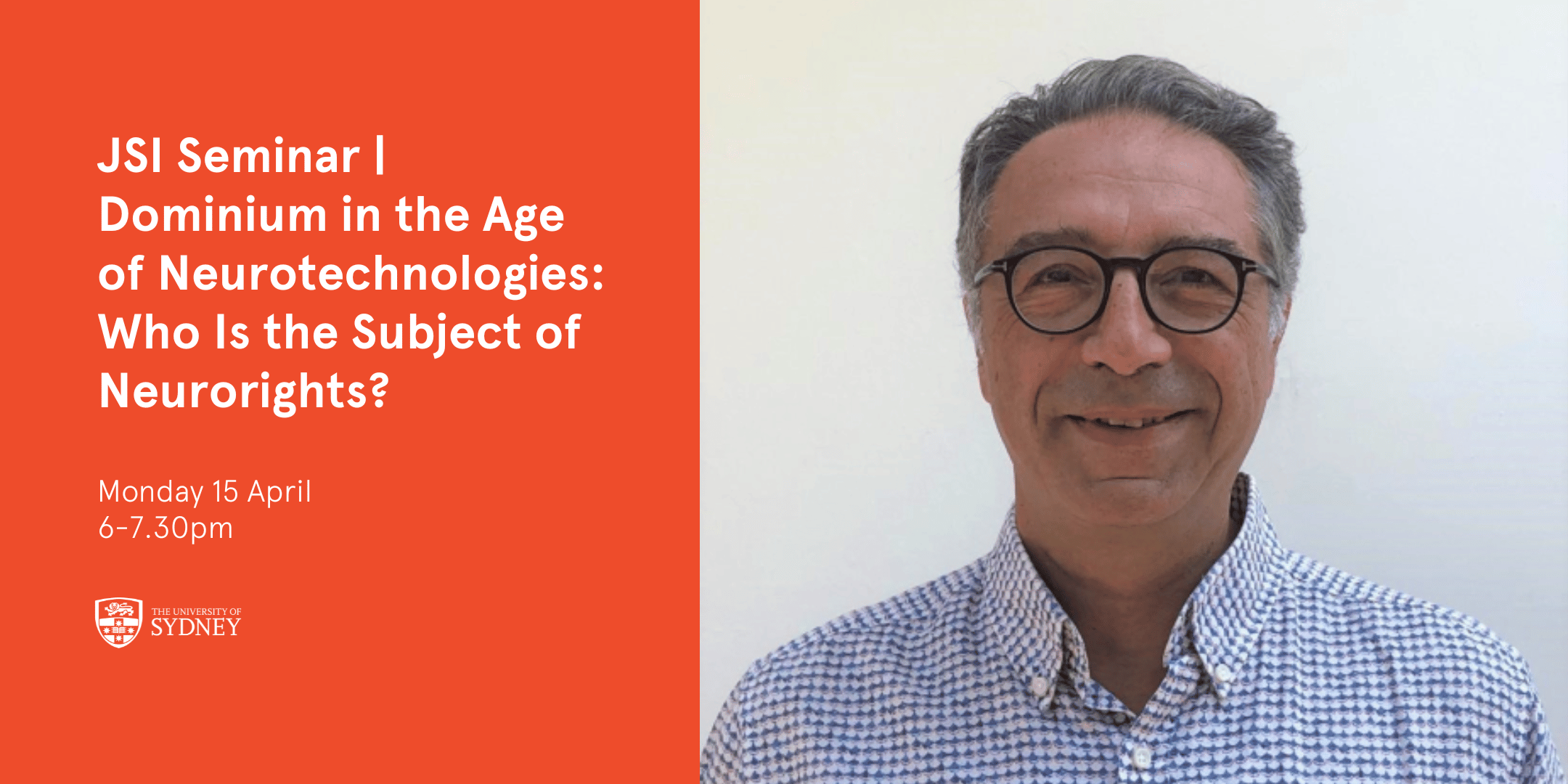
JSI Seminar | Dominium in the Age of Neurotechnologies: Who Is the Subject of Neurorights?
JSI Seminar | Dominium in the Age of Neurotechnologies: Who Is the Subject of Neurorights?
In-person event
Many scholars expressed concerns about how potential misuse of neurotechnologies may threaten some basic rights such as right to privacy, freedom of thought, freedom from self-incrimination, right to fair trial, prohibition of discrimination, etc. In order to ensure an effective protection against these potential threats concrete proposals, such as reconceptualizing already existing rights or creating new rights, are set forth. Nevertheless, the academic debate on how to effectively protect the domain of cognitive liberty from potential violations is conducted without an open discussion on who should be the subject of neurorights. This is not surprising at the first glance, for there is a quasi-unanimity on the content of the notion of “human” as the subject of human rights. The proposed categories of neurorights, especially that of cognitive liberty do not contradict the existing human rights concept in this respect.
The recently flourishing scholarship on the history of human rights, however, offers a critical study of the abstract concept of human as the subject of human rights. The present paper, in line with this scholarship, attempts to introduce a historiographic perspective to the debate on neurorights by asking whether the concept of human as maintained in the theory of human rights is suitable for defining a subject of rights in the age of neurotechnologies. First, the paper offers a historical account on how the concept of human was formed theoretically at the dawn of modernity. Secondly it explains the concept of dominium from a historical perspective and links it to the modern theory of human rights. Finally, it discusses whether neurotechnologies present a challenge to the theoretical constellation around the subject of human rights originating from the notion of dominium.
About the speaker:
Ozan Erözden holds a PhD in public law from the University of Istanbul (1996). Before joining Kadir Has University Faculty of Law he held permanent lecturer positions at Istanbul University Law Faculty, Yıldız Technical University, Department of Political Science and International Relations and at MEF University Law Faculty. Between 1998 and 2001 he worked as human rights observer within the OSCE mission to Croatia. Between March 2006 and September 2007 he conducted research at the International Criminal Law Institute of Cologne University as an Alexander von Humboldt fellow.
He participated in two different international scientific projects, namely Blue-Bird (funded by UNDP and coordinated by Central European University) and JURISTAS (funded by European Commission under the 6th Framework Programme), as well as a national one (TÜBİTAK 1001). Erözden’s published works relate mainly to theory of state, theories of nationalism, human rights, transitional justice and philosophy of law. His current area of research is the interaction between neuroscience and legal theory.
Monday 15 April 2024, 6-7.30pm AEST
Venue: Level 4, Common Room, New Law Building (F10), Eastern Avenue, Camperdown campus
CPD Points: 1.5
This event is proudly presented by the Julius Stone Institute of Jurisprudence at The University of Sydney Law School.

